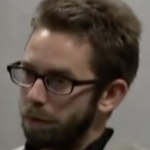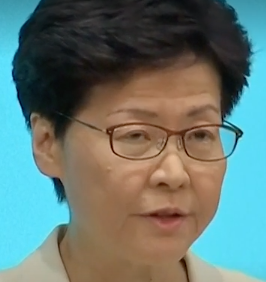1) Micro-expressions in televised public confessions and apologies




Televised confessions or apologies is a very common phenomenon in authoritarian states, where public figures whose have said or done things that deviate away from the state’s mainstream ideologies are forced to apologize on TV or issue a statement for the internet. Activists from China and abroad have been asked to do this. A government official of Hong Kong and corporate leaders as well. This is the state’s way to publicly assert their version of right and wrong.
I have always been interested in the imagery of public apologies—their extreme awkwardness, and the outer and inner transformations that might be occurring through this performative act.
2) A much slower pace of life
Last spring, I went to a Japanese restaurant. I was alone so I sat at the bar, and a sushi chef was working right in front of me. It was late so he was preparing some rolls for the next day. I watched him for two hours. He would lay down seaweed on twelve mats, and put rice on them, then the fillings and toppings, and then roll each of them. And then twelve more. Perhaps tomorrow night he would do the same thing. There is a meditative quality to it. This sushi chef’s movements make me realize that some people in this world have such routines and repetitions in their lives and are content with that, whereas I feel this urge to make every day unique and different. In this project, I might try to get to know someone whose pace is life is drastically different from mine. I am also reading The Stranger by Albert Camus. The repetitiveness and banality of the life of the main character brings out a type of existential dread. I wonder if a similar type of existential dread would come out of my capture of a differently paced life.
- accelerometer on my body. self-discipline to go slower (?)
3) Imprisoned activists
On Tuesday, student activist 岳昕 who was a leading figure in China’s #metoo movement and labor rights movement was released from the state and came home after more a year of disappearance.
On Thursday, I went to Lebanese Jalal Toufic’s lecture. He mentioned a something that a historian wrote in his notebook. An activist was imprisoned at age 40 to age 50, now he is 65, but deducting the 10 years in prison, he really is 55 years old.
Thinking about the time that an activist spends in prison, I don’t know if I think of this time as ‘lost’ time. Time in prison in itself is a political act, a dedication to a cause. This time of absence from the public eye is in some way dedicated to the public, and it is also often the time where the public becomes catalyzed, turning time ‘lost’ to one individual into time of action and togetherness for the rest.
I want to explore change in the public over the duration of an activist’s imprisonment.